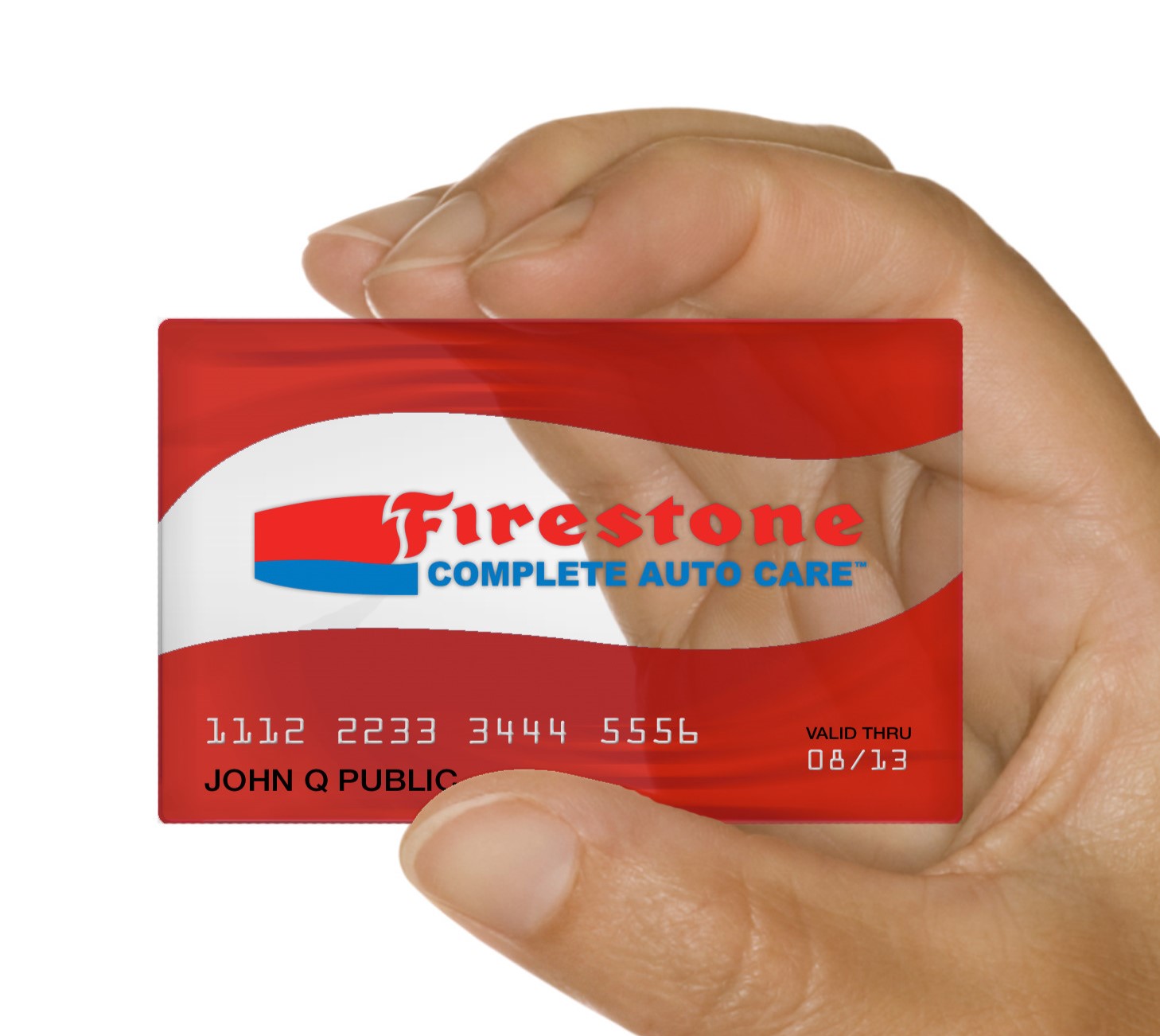Home>Finance>What Credit Score Is Needed For Hyundai Financing


Finance
What Credit Score Is Needed For Hyundai Financing
Published: October 21, 2023
Find out the minimum credit score required for Hyundai financing and secure your car loan today. Get the best finance options for your dream car.
(Many of the links in this article redirect to a specific reviewed product. Your purchase of these products through affiliate links helps to generate commission for LiveWell, at no extra cost. Learn more)
Table of Contents
Introduction
When it comes to purchasing a new car, financing options play a crucial role in making the process affordable and accessible. Whether you’re considering a Hyundai vehicle or any other brand, understanding the credit score requirements for financing is essential. Your credit score is a numerical representation of your creditworthiness and is used by lenders to assess your ability to repay loans.
In this article, we will delve into the importance of credit scores for financing, specifically focusing on Hyundai financing. We will explore the minimum credit score requirements for obtaining financing and provide tips on how to improve your credit score if it falls below the recommended threshold. By the end, you will have a clear picture of what credit score is needed for Hyundai financing and the steps you can take to increase your chances of approval.
Before we delve into the details, it’s important to note that credit score requirements can vary depending on the lender and the specific financing program you are interested in. However, the information provided here will serve as a general guide to help you understand the factors involved in securing Hyundai financing.
What is a credit score?
A credit score is a three-digit number that represents your creditworthiness and provides lenders with an insight into your financial history and responsibility. It is calculated based on various factors, including your payment history, amount owed, length of credit history, types of credit used, and new credit applications.
The most common type of credit score is the FICO score, developed by the Fair Isaac Corporation. FICO scores range from 300 to 850, with a higher score indicating a lower credit risk and a better chance of obtaining favorable financing terms.
Lenders use credit scores to evaluate the potential risk of lending to an individual. A higher credit score demonstrates a track record of responsible credit management, making you a more attractive borrower. On the other hand, a lower credit score may indicate a higher risk of defaulting on payments, which can lead to fewer financing options or higher interest rates.
Credit scores are provided by credit reporting agencies, such as Equifax, Experian, and TransUnion. These agencies gather information from various sources, including credit card companies, banks, and other financial institutions, to compile your credit report. Your credit score is calculated based on the data contained in your credit report.
It’s important to regularly monitor your credit score and review your credit report for accuracy. If you identify any errors or discrepancies, you can dispute them with the credit reporting agencies to ensure your credit score accurately reflects your creditworthiness.
Importance of credit score for financing
Your credit score plays a crucial role in the financing process, as it directly impacts the terms and conditions you can secure for loans and credit. Here are a few reasons why your credit score is important when it comes to financing:
1. Loan Approval: Lenders use credit scores to assess the risk of lending to borrowers. A higher credit score demonstrates a history of responsible financial behavior and increases the likelihood of loan approval. With a lower credit score, however, lenders may perceive you as a higher-risk borrower and may be more hesitant to approve your loan application.
2. Interest Rates: Your credit score also influences the interest rates you can secure on loans. A higher credit score typically translates to lower interest rates, which can save you a significant amount of money over the life of the loan. Conversely, a lower credit score may result in higher interest rates, increasing the overall cost of financing.
3. Loan Terms: Besides interest rates, your credit score may also affect the terms of your loan. Lenders may impose stricter repayment terms or require a larger down payment if your credit score falls below their desired threshold. This can impact your ability to afford the monthly payments and may limit your options for the financing program.
4. Access to Financing Options: Having a good credit score opens up a wider range of financing options. It allows you to choose from various lenders and compare their terms and conditions to find the most favorable option for your needs. In contrast, a lower credit score can limit your options, and you may have to accept higher interest rates or less favorable terms.
5. Credit Limit and Loan Amount: Your credit score can also impact the credit limit on credit cards and the loan amount you can qualify for when seeking financing. Lenders may be more inclined to offer higher credit limits and loan amounts to individuals with higher credit scores, as they have demonstrated responsible credit management in the past.
In summary, maintaining a good credit score is essential for obtaining favorable financing terms. It allows you to secure loan approval, access lower interest rates, negotiate better loan terms, and have more options when it comes to lenders and loan programs. By understanding the importance of your credit score, you can take steps to improve it and increase your chances of securing affordable financing for your vehicle purchase.
Hyundai financing options
Hyundai offers a range of financing options to help customers purchase their desired vehicles. These options are designed to accommodate different financial situations and provide flexibility in terms of repayment and interest rates. Here are some of the common financing choices available for Hyundai vehicles:
1. Traditional Auto Loan: This is the most common and straightforward financing option. With a traditional auto loan, you borrow a specific amount from a lender to purchase the vehicle, and then repay the loan with interest over a predetermined period. Terms typically range from 24 to 84 months, and interest rates depend on your credit score and other factors.
2. Hyundai Motor Finance: Hyundai Motor Finance is the automaker’s in-house financing division. They offer financing options directly through Hyundai dealerships. This can be a convenient choice, as you can secure financing at the same location where you purchase your vehicle. Hyundai Motor Finance offers competitive rates and various term lengths to suit different budgets.
3. Leasing: Leasing a Hyundai vehicle allows you to enjoy the benefits of driving a new car without the commitment of ownership. With a lease, you make monthly payments on the vehicle for a set term, typically ranging from 24 to 48 months. At the end of the lease, you can choose to return the vehicle or purchase it at a predetermined price. Lease terms, monthly payments, and mileage limits vary depending on the lease agreement.
4. Special Financing Offers: Hyundai often provides special financing offers, such as low or zero-percent APR financing for a specific period. These promotional offers can be advantageous for buyers who qualify, as they can save a significant amount of money on interest payments. Special financing offers may have specific requirements, so it’s essential to review the terms and check if you meet the eligibility criteria.
5. Balloon Financing: Balloon financing is another option offered by Hyundai. With this type of financing, you make lower monthly payments throughout the loan term, and at the end of the term, you have the choice to make a large final payment (the balloon payment) to complete the purchase. Balloon financing can be an attractive option for those who want lower monthly payments but have the ability to make a significant payment at the end of the term.
It’s important to thoroughly research and compare different financing options to determine which one best fits your financial situation and goals. Take into consideration factors such as interest rates, loan terms, down payment requirements, and any additional fees associated with each option. Consulting with a Hyundai dealership or a trusted financial advisor can help you make an informed decision and choose the financing option that aligns with your budget and preferences.
Minimum credit score requirements for Hyundai financing
Hyundai, like other lenders, sets minimum credit score requirements for customers seeking financing. These requirements are used to assess the creditworthiness of borrowers and determine their eligibility for different financing programs. While the specific credit score required may vary depending on factors such as the loan amount, model of the vehicle, and the lender’s policies, there are some general guidelines to keep in mind when considering Hyundai financing.
Typically, Hyundai financing programs consider credit scores on a scale ranging from poor to excellent. Here are some general credit score categories and the corresponding financing options:
1. Poor Credit: A credit score below 600 is generally considered poor. If you fall into this category, you may face more challenges in securing Hyundai financing. Lenders may require a larger down payment, charge higher interest rates, or offer less favorable terms. However, Hyundai Motor Finance and other lenders may still have options available for individuals with poor credit scores, so it’s worth exploring your options.
2. Fair Credit: A credit score between 600 and 699 is typically considered fair. While it may still be more challenging to qualify for the most competitive financing programs, you have a better chance of getting approved for Hyundai financing with fair credit. However, keep in mind that you may still be subject to higher interest rates or stricter loan terms compared to borrowers with higher credit scores.
3. Good Credit: A credit score between 700 and 749 is generally considered good. With a good credit score, you are more likely to qualify for Hyundai financing programs with favorable interest rates and more flexible loan terms. Lenders may offer you more options and may be willing to negotiate terms based on your creditworthiness.
4. Excellent Credit: A credit score above 750 is considered excellent. Having an excellent credit score positions you as a low-risk borrower, making you eligible for the best financing options available. You can expect to qualify for lower interest rates, more favorable loan terms, and potentially even special financing offers from Hyundai.
It’s important to note that these credit score ranges are general guidelines, and individual lenders may have slightly different criteria. Additionally, lenders not associated with Hyundai, such as banks or credit unions, may have their own credit score requirements for financing a Hyundai vehicle.
To determine the specific credit score requirements for Hyundai financing options, it’s best to contact Hyundai Motor Finance or speak with a dealership representative. They will be able to provide more detailed information based on your specific circumstances and the financing programs available in your area.
Remember, even if you have a lower credit score, it’s still possible to secure Hyundai financing. There are steps you can take to improve your credit score and increase your chances of approval. Exploring alternative financing options or seeking the assistance of a financial advisor can also help you find the best solution for your specific situation.
How to improve your credit score for Hyundai financing
If you’re aiming to secure Hyundai financing and your credit score is not where you want it to be, don’t worry. There are steps you can take to improve your creditworthiness and increase your chances of obtaining more favorable financing terms. Here are some strategies to help improve your credit score:
1. Review your credit report: Start by obtaining a copy of your credit report from each of the major credit bureaus – Equifax, Experian, and TransUnion. Review the reports carefully for any errors or discrepancies. If you find any inaccuracies, dispute them to have them corrected. This can potentially boost your credit score.
2. Make payments on time: Payment history is one of the most significant factors in determining your credit score. Ensure that you make all your credit card and loan payments on time to demonstrate responsible financial behavior. Consider setting up automatic payments or reminders to avoid missing any due dates.
3. Reduce credit card balances: High credit card balances can negatively impact your credit utilization ratio, which is the amount of credit you’re using compared to your total available credit. Aim to keep your credit card balances below 30% of their limits, and pay down any outstanding debts as much as possible.
4. Avoid new credit applications: Applying for multiple new credit accounts within a short period can lower your credit score. Be selective when it comes to new credit applications and only apply for credit when necessary.
5. Diversify your credit mix: Having a diverse mix of credit accounts, such as credit cards, loans, and mortgages, can positively impact your credit score. Showing that you can responsibly manage various types of credit can improve your creditworthiness.
6. Keep old accounts open: Length of credit history is another crucial factor in determining your credit score. Avoid closing old accounts, even if they are not actively used. Keeping these accounts open can help demonstrate a long credit history and improve your score.
7. Limit credit inquiries: Each time you apply for new credit, a hard inquiry is recorded on your credit report. Too many inquiries within a short period can lower your credit score. Be cautious when authorizing credit checks and limit the number of inquiries you generate.
8. Manage your overall debt: Minimize your overall debt load by paying down outstanding loans and credit card balances. Keeping your debt levels manageable can positively influence your credit score.
Improving your credit score takes time, patience, and discipline. It’s important to remember that there are no quick fixes, and each individual’s credit situation is unique. However, by implementing these strategies consistently over time, you can gradually improve your creditworthiness, making you a more attractive candidate for Hyundai financing and other loan programs.
Before applying for Hyundai financing, it’s wise to consult with a finance professional or a trusted Hyundai dealership representative. They can provide insights specific to your situation and help guide you towards the financing options that align with your improved credit profile.
Tips for getting approved for Hyundai financing with a lower credit score
If you have a lower credit score and are looking to secure Hyundai financing, there are steps you can take to increase your chances of approval. While it may be more challenging to obtain financing with a lower credit score, it’s not impossible. Here are some tips to help you navigate the financing process:
1. Save for a larger down payment: Offering a larger down payment can help mitigate the perceived risk for lenders and improve your chances of approval. Saving up and making a substantial down payment demonstrates your commitment and lowers the amount of money you need to finance. This can make you a more attractive borrower despite having a lower credit score.
2. Consider a co-signer: Having a trusted friend or family member with a good credit history co-sign your loan can greatly improve your chances of approval. The co-signer provides additional security to the lender, as they are equally responsible for the repayment of the loan. However, it’s important to recognize that both you and your co-signer share the responsibility of making timely payments.
3. Explore alternative financing options: In addition to Hyundai Motor Finance, consider researching alternative financing sources, such as local credit unions or online lenders. They may have more flexible lending criteria and be willing to work with borrowers who have lower credit scores. Comparing offers from multiple lenders can help you find the best financing solution that suits your needs.
4. Show proof of steady income: Lenders want assurance that you have a stable source of income to make your loan payments. Providing proof of steady employment and consistent income can help build trust and increase your chances of approval. Gather documents such as pay stubs, tax returns, or bank statements that demonstrate your income stability.
5. Seek pre-approval: Before visiting a Hyundai dealership, consider getting pre-approved for financing. This involves applying for a loan and receiving a conditional approval based on your creditworthiness. This not only gives you a clearer idea of your budget but also shows the dealership that you are serious about purchasing a vehicle and have taken steps to secure financing.
6. Improve other aspects of your financial profile: While your credit score is an important factor, lenders also consider other financial aspects. Work on improving other aspects of your financial profile, such as reducing existing debts, increasing your income, and maintaining a stable employment history. These factors can help offset a lower credit score and improve your overall financial picture.
7. Be prepared to negotiate terms: If you have a lower credit score, lenders may offer you less favorable terms initially. However, don’t be afraid to negotiate. Research other competitive offers and be prepared to discuss interest rates, loan terms, and any fees associated with the financing. By being proactive, you may be able to secure more favorable terms despite your credit score.
Remember, every individual’s financial situation is unique, and the tips provided serve as a general guide. It’s crucial to evaluate your personal circumstances and consult with a finance professional or a Hyundai dealership representative to explore the best financing options available to you. They can provide personalized advice based on your specific credit situation and help you navigate the process of securing Hyundai financing with a lower credit score.
Conclusion
Obtaining financing for a Hyundai vehicle is an important aspect of the car-buying process. Your credit score plays a significant role in determining your eligibility for financing, as well as the terms and conditions you can secure. While the specific credit score requirements may vary, understanding the importance of your credit score and taking steps to improve it can greatly enhance your chances of securing Hyundai financing.
In this article, we have explored what credit score is needed for Hyundai financing and discussed the various financing options available, including traditional auto loans, Hyundai Motor Finance, leasing, special financing offers, and balloon financing. We have also highlighted the significance of credit scores for financing and provided tips on improving your credit score to increase your chances of approval.
It’s important to remember that improving your credit score takes time and effort. By reviewing your credit report, making payments on time, reducing credit card balances, and managing your overall debt, you can gradually enhance your creditworthiness. Additionally, exploring alternative financing options, saving for a larger down payment, and considering a co-signer can also be helpful in acquiring Hyundai financing with a lower credit score.
When seeking Hyundai financing, it’s crucial to research and compare offers from different lenders, including Hyundai Motor Finance and other financial institutions. Consulting with a dealership representative or finance professional can provide valuable insights specific to your situation and help guide you towards the financing options that align with your needs.
Remember, securing Hyundai financing with a lower credit score may have its challenges, but it’s not impossible. With diligence, patience, and a proactive approach, you can navigate the financing process and drive away in your desired Hyundai vehicle. By taking steps to improve your credit score and exploring the options available to you, you can make the car-buying experience more affordable and enjoyable.














